Issue 95 : 28 November 2021
Talofa Lava, Kia Orana, Malo E Leilei, Tena Koutou, Hello ...
... and welcome to the latest issue of “For The Love Of The Game”, the official e-zine of the New Zealand Amateur Sport Association Inc., founded in 2017.
If you have any feedback on this issue, ideas for future articles, or would like to contact the Editor, please click here. And, you are invited to forward the e-zine to others you know, who may be interested in reading it. An archive of earlier editions of the e-zine can be found here. For those who follow Twitter, you can also follow the Association, @AmateurSportNZ.
If you are interested in applying for membership of the Association, please click here.
Community Sport Under COVID-19 Vaccine Mandates ...
Whether it's Saturday afternoon cricket, or a mid-week game of touch rugby, community sport is woven into the social fabric of New Zealand. But just how those activities might look this summer remains unclear as the Government rolls out the new COVID-19 vaccination certificate.
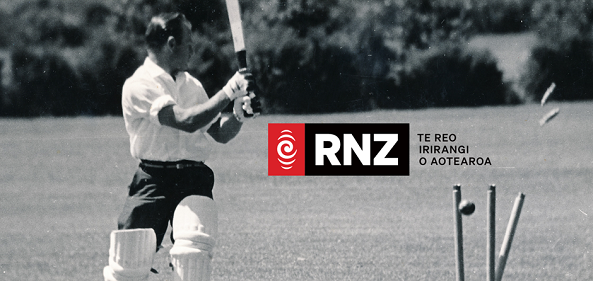
Radio New Zealand’s sports reporter Clay Wilson “limbered up” to go and find some answers and spoke to the Association’s Chairman as part of his story, which was broadcast on “Checkpoint”. You can click here to listen. Or, you can also read the story, by clicking here,
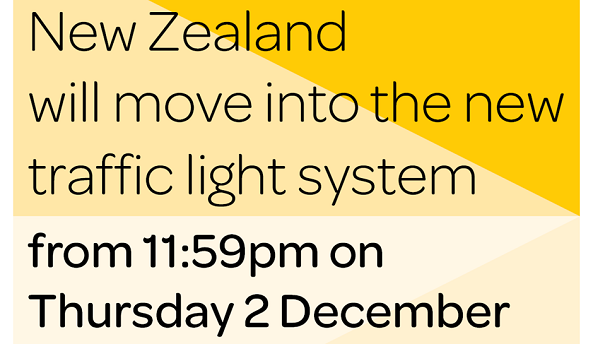
Netherlands To Lift Coronavirus Pass Plan For Outdoor Amateur Sports ...
Meanwhile, the Netherlands Government has decided to drop plans to require checks on COVID-19 passes at amateur sport outdoor locations, in response to pressure from MPs and sports organisations, saying it was unworkable and would discourage people from participating.
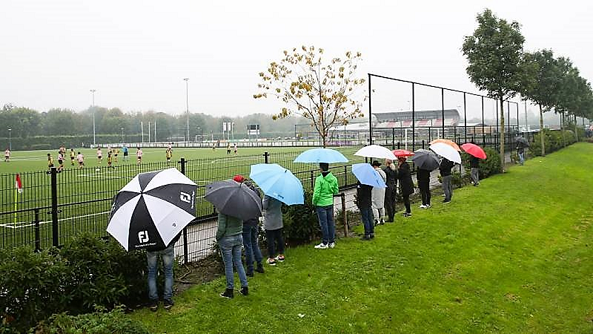
The u-turn means supporters and players over the age of 18 will not have to show a valid QR code on the pitch or while watching a match, but they will have to do so to enter a venue’s changing rooms or a club’s facilities. Stricter rules continue apply to indoor sports.
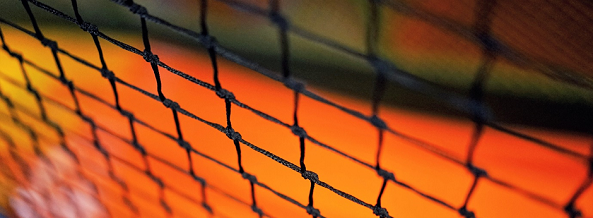
Chairman of the Huizen Volleyball Association in northern Holland, (which plays indoors) Maarten Bokhoven was quoted as saying, “we have already lost members and my fear is that if this policy lasts for a long time, more people will turn their backs on the sport.”
Second Reading Of The Incorporated Societies Bill Concludes ...
Parliament’s Second Reading of the Incorporated Societies Bill has now concluded, with the Bill now proceeding to the “‘Committee Of The Whole House”.
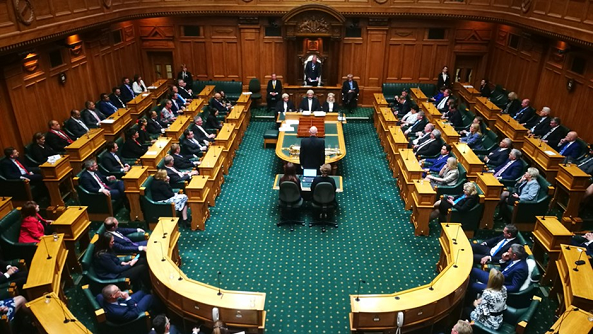
At this stage of the legislative process, all members of Parliament will consider the Bill “part by part”, and all members will have the chance to debate it in detail. At this stage of the process, the Bill as re-drafted following Select Committee input, is unlikely to materially change through to gaining Royal Assent, (possibly before Parliament goes into recess on Thursday, 16 December).
Pilot Programme Under Discussion With Companies Office ...
Over the past three weeks, the Association has been in discussion with the Companies Office (the Registrar of Incorporated Societies) to discuss the establishment of a “Pilot Programme” to proactively lessen the incidence of involuntary incorporated sport club dissolutions.
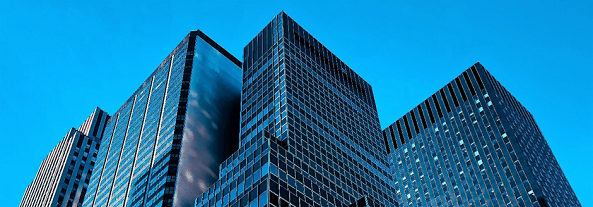
The Association is pleased to have been able to participate in this dialogue and acknowledges the work that the Companies Office already undertakes to remind incorporated sport entities of their ongoing compliance obligations, particularly in respect of financial reporting.
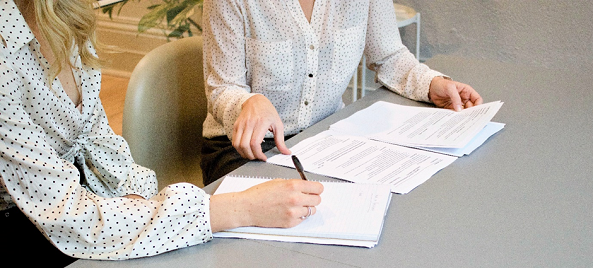
One of the major challenges for the Registrar is to stay up to date with changes in incorporated club contact information, including the details of current officers and their address, telephone contact and e-Mail information. We are continuing our korero to determine how best to meet the goal of ensuring that incorporated sport clubs experiencing change maintain their legal status.
CALM E-Learning Aims To Develop “The Person”, Not Just “The Athlete” ...
While technical and tactical skill development are both essential in the development of any sportsperson, whether competing on the amateur or professional stage, there is an increasing focus on developing “the person before the athlete”, (a sentiment this Association endorses).

In this regard, building trust and understanding between coaches and athletes is key to any athlete's development and experience. The “Coach Athlete Leadership Management” programme (CALM) was developed to grow both the coach and the athlete, with a principal focus on Rugby Union.

While development programmes in sport often focus on the players, the CALM programme focuses on developing coaching skills which can create positive sport and life outcomes. To find out more about CALM programme, you can click here.
2021 National Sport Club Survey – Further Insights ...
A reminder that 2021 survey insights can be found on the Association’s web-site here.

We'd also like to alert readers to the offer of key NSCS sponsor, Dynasty Sport, for custom-made face-masks for sport clubs. Click on the image below to contact Paul Latham at Dynasty Sport for more information about this offer.
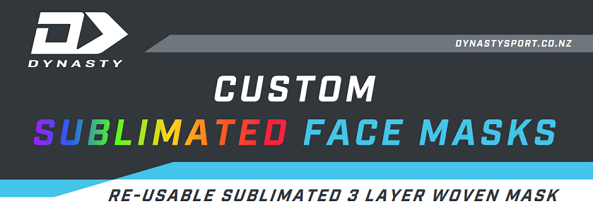
Viewpoint : Will Community Sport Still Unite Us? ...
As the transition from winter to summer sport begins in earnest, many community clubs whose volunteers deliver sport to all age groups will be nervously awaiting guidance from their regional or national bodies as to their compliance obligations in respect of vaccine certificates (CVCs).
Some community organisations (such as some church groups) have already decided to adopt a segregated model for the services they provide, with some faiths now offering separate religious services for vaccinated and unvaccinated worshuppers. Is it possible that a similar segregation of participants, volunteers and spectators could occur in community sport?

The truly egalitarian nature of community sport in New Zealand, where people of all ethnicities, genders, religious beliefs and socio-economic backgrounds mix freely “for the love of the game”, is a defining feature of New Zealand’s culture and way of life. Any public-health enforced segregation of participants, volunteers or spectators may well test these foundations.

The "COVID-19 Public Health Response (COVID-19 Vaccination Certificate) Order 2021" was published in the New Zealand Gazette (Te Kāhiti o Aotearoa) on Friday last week, (26 November). The order comes into effect at 11.59pm this evening, (Sunday, 28 November). The order enables “eligible persons” to be issued with a COVID-19 vaccination certificate (or CVC) that they may produce when proof of vaccination status is required, (for example, to be able to enter certain areas, places, or premises, or to receive certain services).
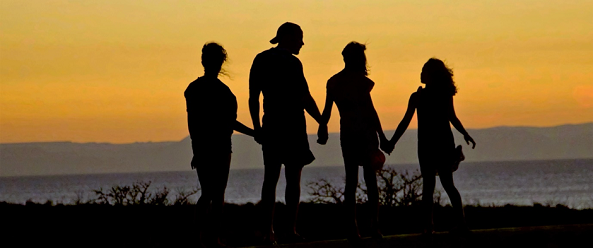
Sport New Zealand’s latest guidance states that a ”gathering” organiser, venue or facility will need to choose whether or not to ask for CVCs, with the number of people that can meet at the ”gathering” (a term applicable to community sport and recreation activities) dependent on whether CVCs are required and checked, or not.
Under the terms of the order (which can be read here), a CVC must show a person's name and date of birth, with significant penalties applying if a CVC is misused. It can be assumed that a club's volunteers will undertake the role of checking CVCs, if they are required to be shown. This compliance obligation may be challenging for many community sport organisations which rely on voluntary workers, while also potentially being an obstacle to some people continuing their involvement as participants, volunteers or spectators.
Sport New Zealand has indicated its intention to provide further guidance, next week.
From The Archives ...
A SPORTS CLUB FOR WELLINGTON
A Commendable Institution
FREE LANCE, VOLUME VIII, ISSUE 422, 1 AUGUST 1908, PAGE 6
"For many years now, it has been the dream of the enthusiastic leaders of sport in this city to have an institution where all manners and conditions of athletes could meet in one common building and fraternise together.
After much consideration of the ways and means, and correspondence with other similar bodies in different parts of the Australasian colonies, a meeting was held on Monday, at which the Sports Club for Wellington was successfully floated. A sub-committee has been appointed to draft a constitution, and they will report to a future meeting.
The objects of the Sports Club are: the promotion of social intercourse among members; the establishment of a library of sporting literature; the welfare of members; to afford members all the usual privileges etc. of a club; to provide and support all branches of sport; to consider, discuss, and decide questions connected with sport; to promote honourable practice; to repress malpractice; and to render voluntary aid to clubs or associations or to any of the members.”
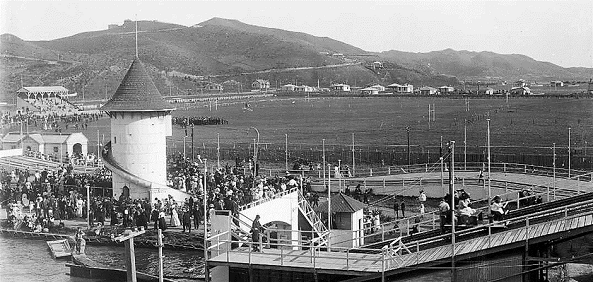
(An image of “Wonderland” in Miramar, with sports fields in the background)
This week’s story strays from the usual biography of a sportsperson who contributed to New Zealand’s community sporting history. Instead, the objects of the Wellington Sports Club from 113 years ago provide an insightful and instructive view of the role in sport in our communities. Phrases such as “welfare of members”, “promotion of social intercourse”, “promote honourable practice” and “repress malpractice” indicate the fundamental values of sport that society considered important in 1908.
The thought that members of a community organisation might “consider, discuss and decide questions connected with sport” illustrates the importance of community sport policy being determined in that era from the "bottom-up" by participants, which then informed the priorities of national governing bodies.
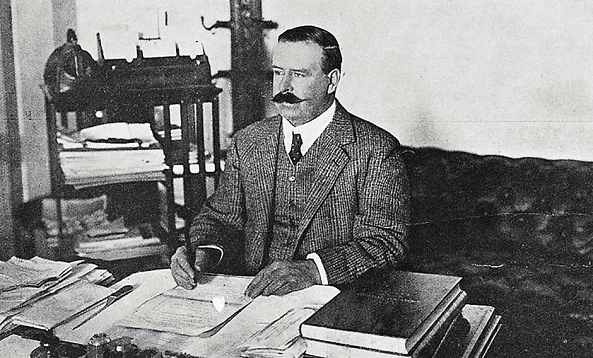
(Sir Joseph Ward, inaugural President of the Wellington Sports Club)
By way of brief historical reference, the idea of “Wellington Sports Club” was first mooted in 1896, with the Government initially refusing to grant the club a Charter. The club was eventually established in May 1910, in Miramar on the site of the Wonderland Reserve, leasing facilities from the Miramar Athletic Park Company, with golf, archery, tennis, croquet and bowls being the initial focus of the founders. The first President was the Right Hon. Sir Joseph Ward 1st Baronet, of Wellington, GCMG, PC, at the time, the Prime Minister of New Zealand. The club’s history appears to have been brief, despite its heroic objectives.
The Final Word …
“It is a challenge in itself to find trainers and supervisors for all your teams, let alone volunteers to stand at the door.”
(Maarten Bokhoven, Huizen Volleyball Association)